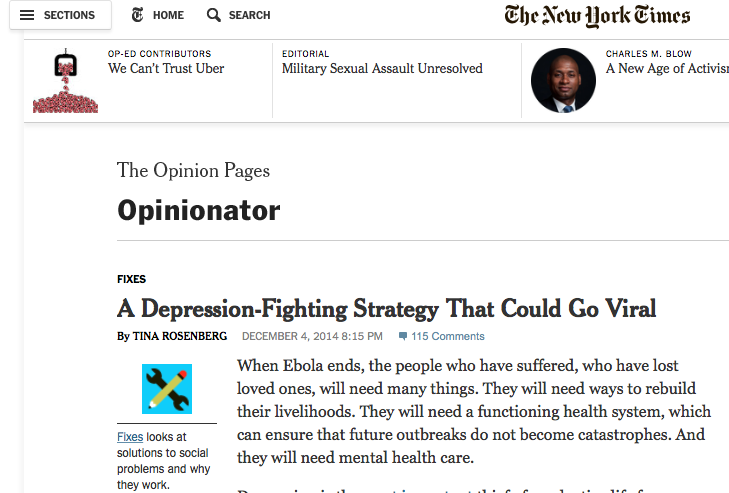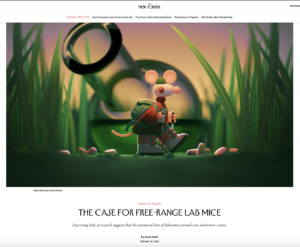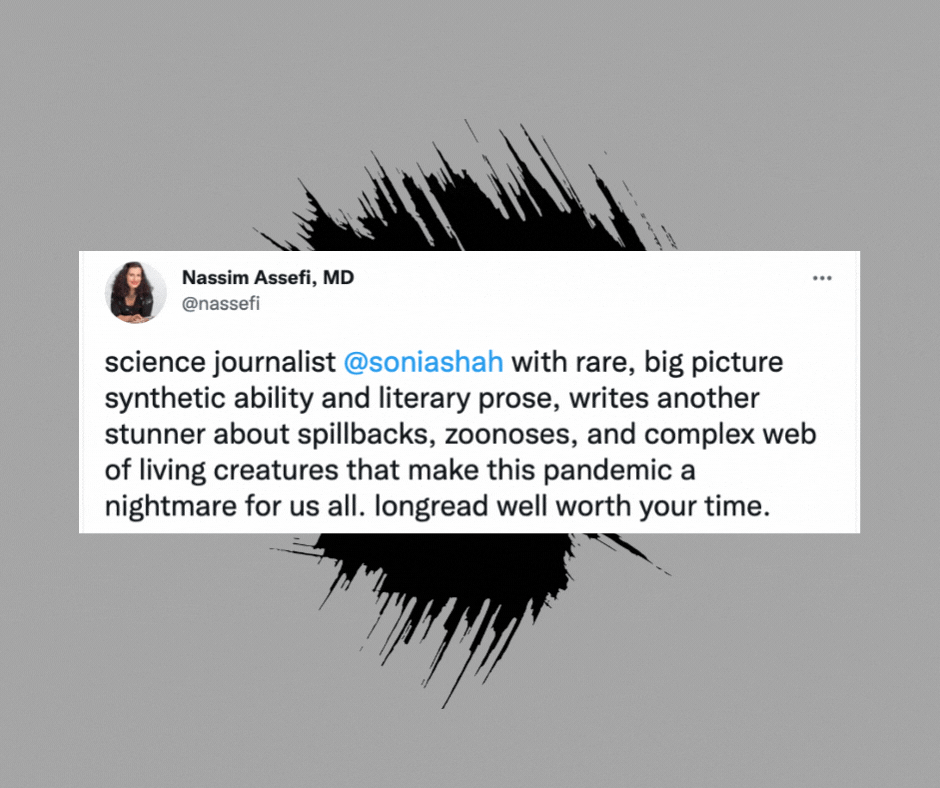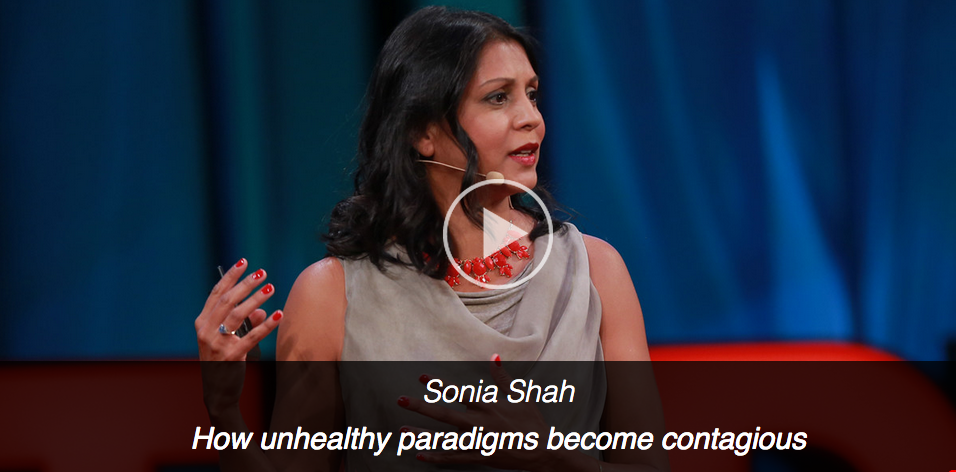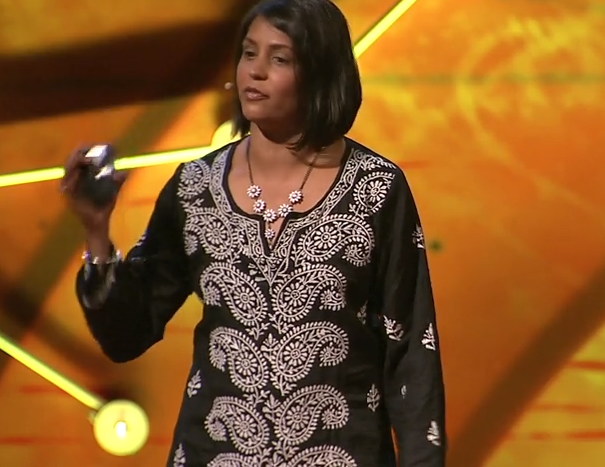There’s a lot of commentary about poverty, development, and medicine out there that is low quality, patronizing, and off-the-mark. I generally try to avoid it and not spend too much time worrying about it. But this New York Times op-ed by Tina Rosenberg just really bugged me.
She starts by noting that “we” often think of depression as a “First-World problem.”
Do “we” really? I don’t.
Then she says that depression is actually “just as widespread” in poor countries, “if not more so.”
Again–really? What’s the evidence for this claim? (Clue: “If not more so” is a giveaway–there is no evidence.)
Then, instead of backing up this wishy-washy claim that there may be more depression in poor countries compared to rich ones, she says that this could be true because in poor countries, there is “a good deal more to be depressed about.”
 Seriously? This is, of course, a variation of the colonialist fantasy that all of “us” are enlightened and happy and all of “them” are miserable savages. It’s patently untrue. And it also implies that depression stems from “things to be depressed about,” which it doesn’t. There are people who have everything and suffer depression, and those who have little who don’t. Basically, she’s saying that all people in all poor countries should be more depressed, because their lives are more depressing to the likes of her.
Seriously? This is, of course, a variation of the colonialist fantasy that all of “us” are enlightened and happy and all of “them” are miserable savages. It’s patently untrue. And it also implies that depression stems from “things to be depressed about,” which it doesn’t. There are people who have everything and suffer depression, and those who have little who don’t. Basically, she’s saying that all people in all poor countries should be more depressed, because their lives are more depressing to the likes of her.
Pointing out that mental health care should be part of basic health care, she then points out the dearth of psychiatrists in Liberia and Sierra Leone.
That is indeed hard to believe, if you think that Western allopathic medicine is the only kind of medicine there is. But just because these societies do not practice Western-style psychiatry does not in any way mean that her implication–they have no traditional or alternative medical traditions of their own that address mental health–is true. Many societies may even (gasp!) deal with mental health problems better than Western psychiatry does. I don’t know. Tina Rosenberg doesn’t say. She just relies on the colonialist trope instead: “we” have all the best resources and those poor miserable savages have nothing. Recall, too that psychiatry is a relatively new in discipline and one with a highly checkered past. Just a few decades ago, practices that we would today consider barbaric were run-of-the-mill psychiatry.
